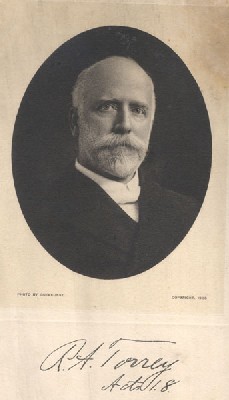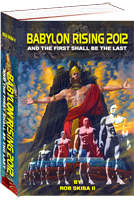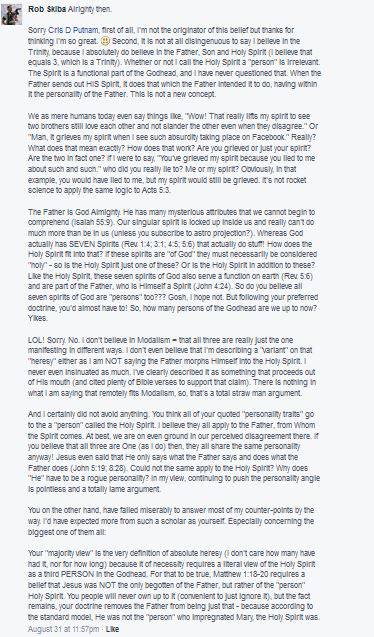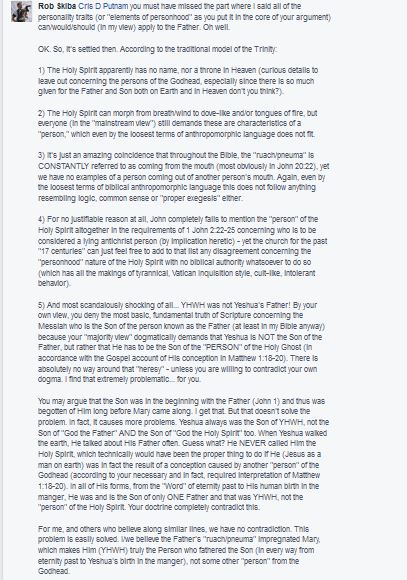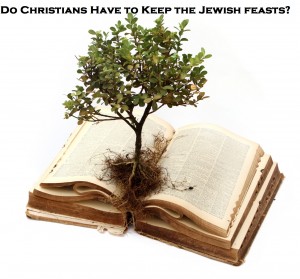 This a reply to Rob Skiba’s Facebook note: Twisting and Distorting Colossians 2. The problem is that Skiba is simply uninformed and incorrect. In Colossians, Paul is addressing a situation quite similar to Skiba’s own “ministry” that also asserts New Covenant believers need concern themselves with the obsolete Mosaic covenant stipulations (Hebrews 8:13). Despite his special pleading, historians and biblical scholars universally agree that the dangerous teaching at Colossae was heavily steeped in Jewish customs. Recent President of the Evangelical Theological Society, Clinton Arnold of Talbot School of Theology and Biola University, observes, “The fact that there are many distinctively Jewish elements to the false teaching (such as Sabbath observance, Jewish festivals, and an interest in angels; see 2:16–18) has led a number of scholars to contend that the competing teaching had something to do with Judaism”[1] Arnold continues, “The best explanation for this dangerous teaching is that it comes from the context of the local Jewish and pagan folk belief.” [2] He believes a charismatic leader attracted a following and was presenting himself as a guide to the “true Christianity” which included Jewish customs, feasts, and Sabbath keeping (remind you of anyone?).
This a reply to Rob Skiba’s Facebook note: Twisting and Distorting Colossians 2. The problem is that Skiba is simply uninformed and incorrect. In Colossians, Paul is addressing a situation quite similar to Skiba’s own “ministry” that also asserts New Covenant believers need concern themselves with the obsolete Mosaic covenant stipulations (Hebrews 8:13). Despite his special pleading, historians and biblical scholars universally agree that the dangerous teaching at Colossae was heavily steeped in Jewish customs. Recent President of the Evangelical Theological Society, Clinton Arnold of Talbot School of Theology and Biola University, observes, “The fact that there are many distinctively Jewish elements to the false teaching (such as Sabbath observance, Jewish festivals, and an interest in angels; see 2:16–18) has led a number of scholars to contend that the competing teaching had something to do with Judaism”[1] Arnold continues, “The best explanation for this dangerous teaching is that it comes from the context of the local Jewish and pagan folk belief.” [2] He believes a charismatic leader attracted a following and was presenting himself as a guide to the “true Christianity” which included Jewish customs, feasts, and Sabbath keeping (remind you of anyone?).
Thus, the excuse that folks who cite Colossians 2:16 against Skiba’s Judaizing heresy is some sort of “bible twisting” is completely spurious. It is also instructive that the only people who make such a claim are folks like Jim Staley and Michael Rood who are also deeply invested in Hebrew Roots teaching. Real biblical scholars, steeped in study of the historical context, univocally identify it in a Judaizing context. For example, Robert Wall writes:
Several scholars have recently concluded that the clipped references in Colossians (cf. 2:9, 18, 21, 23) to a “hollow and deceptive philosophy” that “depends on human tradition and the basic principles of this world” (2:8) to fashion “fine-sounding arguments” (2:4) suggest that the Colossian congregation was being influenced by a Hellenized form of piety (Francis 1975), probably of Jewish origin (Bornkamm 1975). If to be a Christian meant in some important sense to be Jewish, as opponents to the Gentile mission would have argued, then believers would quite naturally look to their Jewish-Christian teachers (perhaps even to the rabbinate of the local synagogue) for instruction. [3]
Indeed, this sounds very much like Skiba’s teaching that to be Christian means to keep the Jewish feasts, dietary restrictions and Sabbath observance. Now that the context is clear, let’s examine the passage.
Skiba argues that the passage is teaching believers not to let pagans judge them for doing the things of God. But the passage actually says “let no one pass judgement on you” not just pagans. Thus, the passage teaches do not let Rob Skiba imply you will be a “janitor in heaven” for not keeping the feasts. Many similar HRM teachers seem to operate under the delusion that the festivals mentioned in Colossians were not the typical Jewish feasts but no historian will support that contention. It’s just a manufactured excuse for the HRM error. While in English translation it is easy to generalize a term like “festival” and then assert it was some unknown pagan festival, the original text is crystal clear. The Greek term used is ἑορτή transliterated heortē and below is a snip of the Lexham Greek-English Septuagint which verifies that the term ἑορτήis used in Leviticus 23.
More pertinent to the discussion at hand, ἑορτή appears 25 times in 23 verses of the New Testament. A few examples include:
- “But they said, “Not during the feast, lest there be an uproar among the people” (Mt 26:5).
- “Now the Feast of Unleavened Bread drew near, which is called the Passover”(Lk 22:1).
- “Now when he was in Jerusalem at the Passover Feast, many believed in his name when they saw the signs that he was doing” (Jn 2:23).
- “Now the Passover, the feast of the Jews, was at hand” (Jn 6:4).
- “Now the Jews’ Feast of Booths was at hand” (Jn 7:2).
Indeed, without exception the term heortē is used to denote the Jewish feasts in the New Testament. Skiba has not provided one shred of historical evidence that it meant anything different in Colossians: “Therefore let no one pass judgment on you in questions of food and drink, or with regard to a festival or a new moon or a Sabbath” (Col 2:16).
The fact of the matter is that no one outside the Hebrew Roots Movement agrees with Rob Skiba and Jim Staley. Again scholars are univocal. Arnold comments, “The false teacher(s) were advocating a number of Jewish observances, arguing that they were essential for spiritual advancement”[4] Wall’s comment is particularly instructive:
The list of these celebrations, which includes a religious festival, a New Moon celebration or a Sabbath day, is fairly typical (compare Hos 2:13; Ezek 45:17; Jubilees 1:14). Since the list encompasses annual festivals (such as Passover or Yom Kippur), monthly meetings (such as the New Moon celebration) and the weekly observance of sabbath, it is evident that Paul’s opponents required a rather comprehensive obligation. Moreover, within Judaism most of these celebrations were intended to help the community look forward to Messiah’s deliverance of Israel from its suffering and to its entrance into God’s promised shalom. Thus, for the Christian to participate in these Jewish celebrations was tantamount to a denial of Jesus’ messiahship. [5]
That last line brings this Judaizing heresy into sharp focus and ought to bring deceived Christians still amongst Skiba’s following to heartfelt repentance. This is not a trivial error, especially now that one has been made aware of its depth into apostasy.
[1] Clinton E. Arnold, “Colossians” in The ESV Study Bible (Wheaton, IL: Crossway Bibles, 2008), 2290.
[2] Arnold, “Colossians,” 2290.
[3]Robert W. Wall, Colossians & Philemon, The IVP New Testament commentary series (Downers Grove, Ill.: InterVarsity Press, 1993), Col 1:1.
[4] Arnold, “Colossians,” 2297.
[5]Wall, Colossians & Philemon, Col 2:18.


